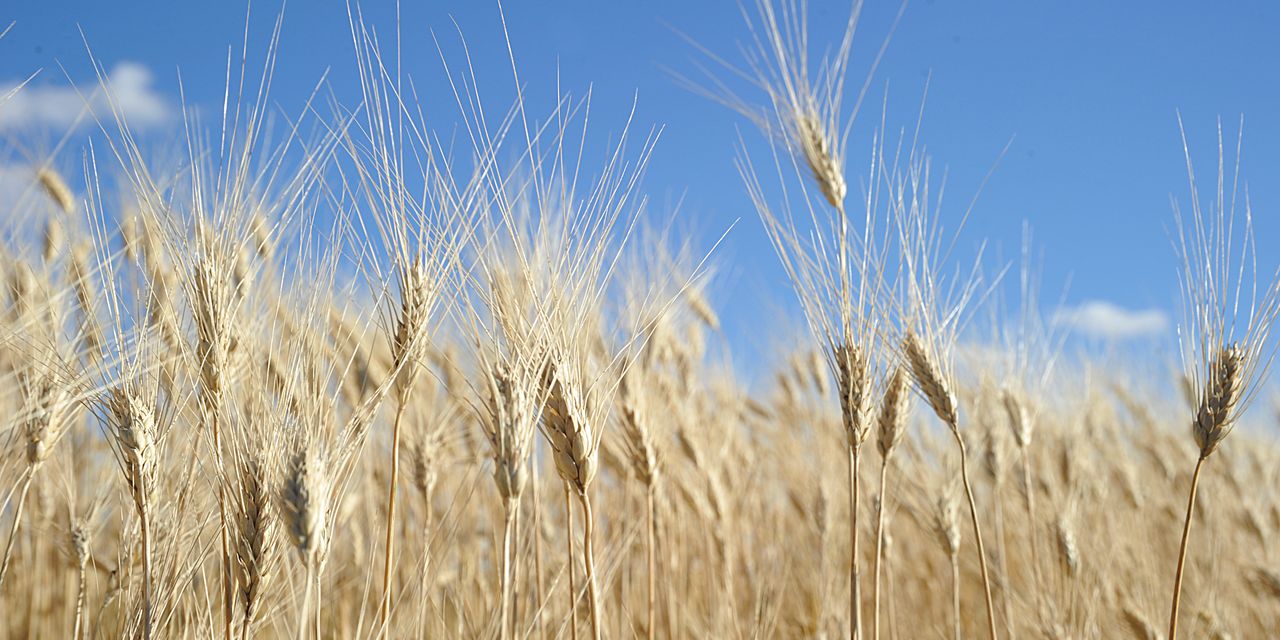The spike in global
wheat prices
on Tuesday, after a major dam collapsed in southern Ukraine, is unlikely to become a worry for U.S. consumers, economists and analysts said.
Tuesday’s wheat futures settled at $6.23 a bushel, settling from a morning spike that reached $6.39, according to FactSet. In the past five days, the most active contracts for wheat futures have seen a price hike of nearly 4%. Prices settled Wednesday at $6.16 a bushel.
The southern Ukraine region where the dam collapsed is home to massive agricultural fields, but also serves as a frontline in Russia’s war in Ukraine. That means Ukraine has planted less wheat in that area since the war began in early 2022, according to Joe Glauber, a senior research fellow at the International Food Policy Research Institute.
“Some production will be lost, but it’s not going to be material to the world balance sheet,” added Tanner Ehmke, lead economist for grains and oilseeds for financial services company CoBank. “I wouldn’t be hoarding bread anytime soon.”
Raw commodity prices also account for a relatively small portion of costs by the time products reach U.S. grocery shelves, making it unlikely that small futures increases will dramatically alter consumer prices. The cost of raw wheat commodities accounts for roughly 5% of the total wheat product cost consumers see, Glauber said. That may be welcome news to consumers who have grown weary of higher prices at the grocery store.
But the dam collapse comes amid increased uncertainty about wheat crop yields in other countries. The market overreacted to Tuesday’s dam collapse because of this increased industry volatility, Ehmke said.
“It’s happened when we have fairly tight supplies, so anything that prevents more grain leaving Ukraine would have had an immediate impact on markets,” Glouber added.
Wheat costs are still down more than 20% from this time last year. Futures prices hit nearly $11 in June 2022, months after Russia began its initial invasion.
Rebuilding the dam will take years, which could endanger crops in the region and hinder Ukraine’s ability to handle floods in its breadbasket moving forward, said Scott Irwin, a professor of agricultural economics at the University of Illinois.
The war’s impact on Ukrainian agricultural exports, punctuated by the dam collapse, has also put “question marks” on the viability of exports from the Black Sea Corridor, Ehmke said.
The Black Sea Grain Deal, signed in July 2022 to ensure grain exports could safely pass through Ukrainian ports in the Black Sea during the war, has faced heightened instability in recent months. Russia briefly pulled out of the deal last year and has threatened to do so again. The agreement’s demise would dramatically affect wheat exports and disrupt the market, economists said.
Write to [email protected]
Read the full article here




